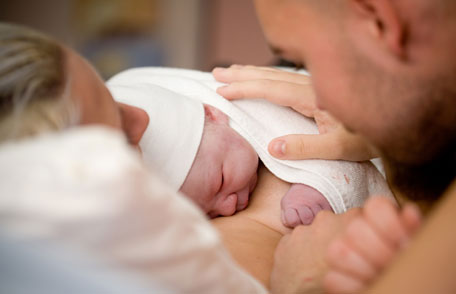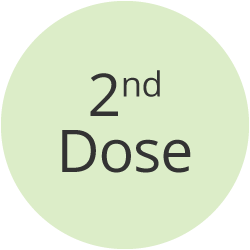Vaccine (Shot) for Hepatitis B

How to pronounce: “HEP” + “uh” + “TY” + “tis”
Three doses of the hepatitis B shot are recommended for children by doctors as the best way to protect against hepatitis B.
When should my child get the shot?
One dose at each of the following ages:
Mothers can unknowingly pass hepatitis B to their babies at birth.
Why should my baby get the hepatitis B shot?

- Protects your child from against hepatitis B, a potentially serious disease.
- Protects other people from the disease because children with hepatitis B usually don’t have symptoms, but they may pass the disease to others without anyone knowing they were infected.
- Prevents your child from developing liver disease and cancer from hepatitis B.
- Keeps your child from missing school or child care and you from missing work.
The hepatitis B shot is safe.
The hepatitis B shot is very safe, and is effective at preventing hepatitis B. Vaccines like any medicine, can have side effects. These are usually mild and go away on their own.
What are the side effects?
The most common side effects of the hepatitis B vaccine are mild and include:
- Low fever (less than 101 degrees) or,
- Sore arm from the shot.
Prepare for your child's vaccine visit and learn about how you can:
- Research vaccines and ready your child before the visit
- Comfort your child during the appointment
- Care for your child after the shot
What is hepatitis B?
Hepatitis B is a contagious liver disease caused by the hepatitis B virus. When a person is first infected with the virus, he or she can develop an “acute” (short-term) infection. Acute hepatitis B refers to the first 6 months after someone is infected with the hepatitis B virus. This infection can range from a very mild illness with few or no symptoms to a serious condition requiring hospitalization. Some people are able to fight the infection and clear the virus.
For others, the infection remains and is “chronic,” or lifelong. Chronic hepatitis B refers to the infection when it remains active instead of getting better after 6 months. Over time, the infection can cause serious health problems, and even liver cancer.
What are the symptoms of hepatitis B disease?
Infants and young children usually show no symptoms. Hepatitis B infection causes
- Loss of appetite (not wanting to eat)
- Fever
- Tiredness
- Pain in muscles, joints, and stomach
- Nausea, diarrhea, and vomiting
- Dark urine
These symptoms usually appear 3 or 4 months after a person gets the virus.
Is it serious?
Hepatitis B can be very serious. Most people with a recent hepatitis B infection may feel sick for a few weeks to several months. Some people get over the illness. For other people, the virus infection remains active in their bodies for the rest of their life.
Although people with lifelong hepatitis B usually don’t have symptoms, the virus causes liver damage over time and could lead to liver cancer. There is no cure for hepatitis B, but treatment can help prevent serious problems.
Hepatitis B can cause liver damage and cancer.
How does hepatitis B spread?

Hepatitis B is spread through contact with blood of an infected person (even if they show no symptoms).
- At birth
- Open cuts or sores
- Sharing toothbrushes or other personal items
- Food chewed for a baby
- Any infected family member or caregiver can pass the virus to your baby.
- The virus can live on objects for 7 days or more.
Follow the vaccine schedule
The Centers for Disease Control and Prevention, American Academy of Family Physicians, and American Academy of Pediatrics strongly recommend children receive all vaccines according to the recommended vaccine schedule.
- Get a list of vaccines that your child may need based on age, health conditions, and other factors.
- Learn the reasons you should follow the vaccine schedule.


